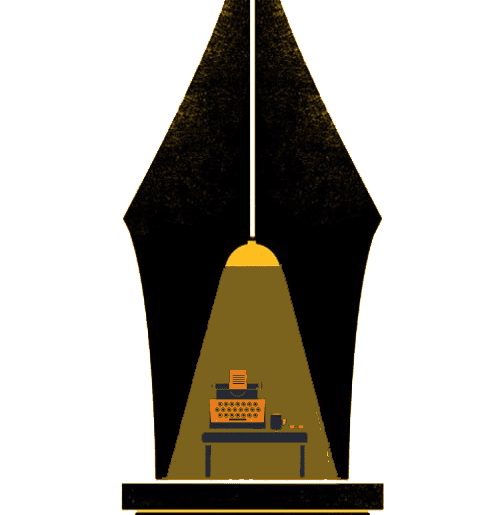You can’t control everything. Often times you just need to relax and have faith that things will work out. But sometimes you should seek professional help. When we fall sick, we take medication and move on. However, when it comes to mental illness, it is not so simple.
Our mental health is not static, it’s changeable and dependent on a number of factors. The very nature of mental health is that it depletes energy resources. The emotional labour is unseen and unacknowledged in our culture. So when we exhaust all our mental and emotional energies, we don’t realise how to tackle the tiredness that follows, until it directly impacts our physical health. Unfortunately, it takes a burnout to highlight the need for professional intervention. Most often than not we keep on struggling with depression and anxiety without actually calling it depression or anxiety. Social media or pop culture may temporarily give us relief, but sometimes the romanticised notions of mental health, displayed in artsy The Artidote posts or movies that show the suicidal girl like a hot mess, make the situation worse. They invalidate the non-glamorous versions of our mental struggles and in that situation, we need some gentle reminders. Here are some of them.
Factors which play an important role in affecting our mental health:
- Comparisons- We often compare ourselves to others. Our friends, colleagues, family members, and even those who we don’t know. Our social media is filled with smiling faces, achievements, and success. It can appear as though everyone’s life is perfect except for ours. Social media is not an accurate representation of real life. People rarely post the bad bits. We use filters to hide how tired we are. We crop out the people we’ve argued with. Unconsciously, or consciously we all create our Facebook timelines and Instagram profiles to be the best images of our lives.
- Loneliness- Many people experience this feeling at some point in time in their lives. Even when people are surrounded by a number of friends, the feeling does not go away. Such a prolonged feeling of loneliness can have a serious effect on our mental health. Loneliness as a factor affecting one’s mental health and sometimes it becomes a by-product of other mental health issues.
- Bullying and Abuse- An unhealthy environment that includes any kind of abuse, whether verbal, physical, sexual, or psychological, can make it nearly impossible to achieve peace of mind. The after effects of abuse can stay with the victims for years, and some abuse victims experience post-traumatic stress disorder.
- Proper Sleep- A sound sleep is an unrecognised factor by many people. It can have a major impact on our daily functioning, mood, concentration, and memory. Having a regular sleeping pattern with at least seven-eight hours of sleep is recommended for a healthy lifestyle.
- Genetics: Simply put, if you have a family history of mental illness then you are more susceptible to it.
There are times when we often blame ourselves for certain things and situations. We can be really harsh on ourselves without realising. Nobody is perfect and there will be times when you have to breathe and let go of the things that hurt you. We deserve to forgive ourselves.
Few simple steps can bring about many changes in one’s life and improve emotional well-being and mental health.
- Tell something positive to yourself every day.
- Write down the best moments in your life and read them whenever you feel low.
- Eat a nutritious meal and have healthy sleeping habits.
- Help someone. This builds self-esteem.
- Identify the trigger points and avoid them.
- Take a break.
- Don’t shy away from asking for help.
- Don’t shy away from refusing to help if it’s taking a toll on you. Realise that you are not a professional counsellor and the emotional cost of listening to others and helping them resolve their conflicts can harm you in the process.
- Prioritise yourself and seek therapy/medication/help that you need. It is normal.
Let’s own up to our not okay-ness and have faith in ourselves. As Christopher Robin from Winnie the Pooh says, “Promise me you’ll always remember – you’re braver than you believe, stronger than you seem, and smarter than you think.”
Feature Image Credits: BBC
Anoushka Sharma









